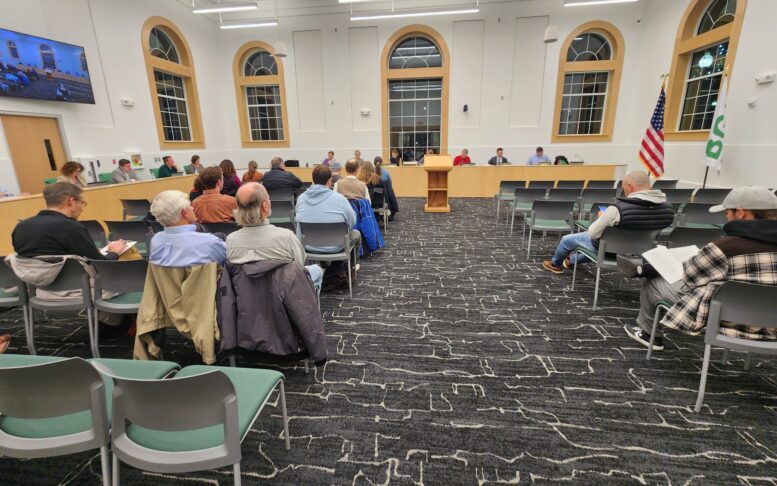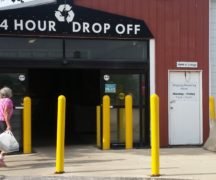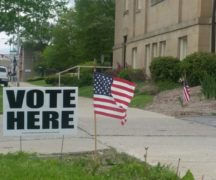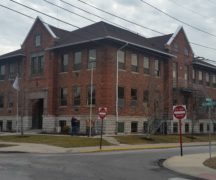By JAN LARSON McLAUGHLIN
BG Independent News
By a vote of 6-1 on Monday, Bowling Green City Council lent its voice to a grassroots effort asking state and federal officials to act to reduce the impact of climate change.
Voting for the resolution were council members Jeff Dennis, Bill Herald, Mark Hollenbaugh, Rachel Phipps, Joel O’Dorisio and Nick Rubando. The sole dissenting vote was cast by Greg Robinette.
Though well aware that a city council can do little to change the course of climate change, the author of the resolution, Herald, hoped the legislation would send a message to state and national leaders.
The legislation calls for national leaders to consider a fee on carbon emissions, with the fees being turned into dividends for U.S. citizens, as part of a nationwide solution to detrimental climate changes. When the resolution was introduced last month, Herald said the proposal was an effort to find comprehensive solutions through bipartisan support.
Speaking in favor of the resolution at Monday’s meeting were local citizens concerned about climate change.
Dr. Bob Midden, a Bowling Green chemist with more than 40 years of experience, who helped develop an environmental health science program at Johns Hopkins, said the issue is “urgent.”
The detrimental effects have “advanced even faster than scientists have predicted in the last 50 years,” Midden said.
Extreme weather conditions that cost communities vast amounts of money were once common a few times a year. Now they occur every few weeks, he said.
Midden said part of his motivation for speaking to council on the issue was guilt. “I’m afraid I haven’t done enough for my children and grandchildren,” he said. “Please adopt this resolution.”
Charlotte Reith, a grassroots climate policy volunteer with Citizens’ Climate Lobby and co-liaison to Congressman Bob Latta’s office for this electoral district, also spoke in favor of the resolution.
“Climate change is already costing us,” in terms of droughts, frequent flooding, wildfires and other crises putting food systems at risk, she said.
“There will never be a perfect solution to the mess we are in,” Reith said. And waiting will only lead to worsening problems.
“We have the solutions,” she said, asking Bowling Green leaders to push for national policies that will make a difference.
“I want the town I live in to continue its environmental leadership,” Reith said.
Michael Kunst, an environmental science major at BGSU, said he is trying to follow in the footsteps of his grandfather. “I want to leave this earth better than I found it.”
“Today we have an opportunity to change things for the better,” Kunst said to City Council.
Also speaking to council was Dr. Bob Clark-Phelps, who has a PhD in physics from UC Berkeley and is the senior member of the technical staff in the solar manufacturing industry. He has 20 years of experience developing solar technology, and seven years of experience studying and lobbying on climate policy as a volunteer with Citizens’ Climate Lobby, including twice yearly meetings with members of Congress or their legislative staff.
Clark-Phelps talked about communities being crippled by torrential downpours that were once considered “freak events” but are now commonplace. It’s no longer unusual for some areas of the nation to get a month’s worth of rain in an hour, he said.
By putting more carbon in the air, the conditions are only getting worse, he said.
“Local communities will pay the price” for inaction by federal leaders, Clark-Phelps said.
The resolution before council stated Bowling Green acknowledges that the solution to environmental issues must be multifaceted, involving innovation in scientific, technological, engineering, economic and governmental areas.
As part of the solution, the resolution expresses support for a well-balanced, practical and pragmatic, bi-partisan federal Carbon Fee and Dividend policy as a means to reduce the environmental and human costs of the emissions generated by burning fossil fuels. That policy may result in a fee placed on emissions and a carbon dividend, through which all revenues from the fee (minus fixed administration costs) could be distributed equally to all U.S. citizens on a monthly basis to offset any potential increase in the cost of goods and services resulting from the fee.
Prior to casting his “no” vote, Robinette said he doesn’t support the policy and felt it was inappropriate for the city to adopt the legislation.
Rubando supported the legislation and asked that citizens also voice their feelings to state and national leaders. “We need to hold them to account and hold their feet to the fire,” he said.
Herald thanked area citizens for their support and study on the issue. “It’s something we should lend our voice to,” he said.





